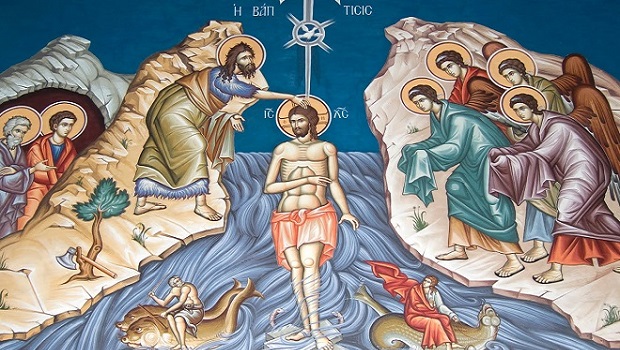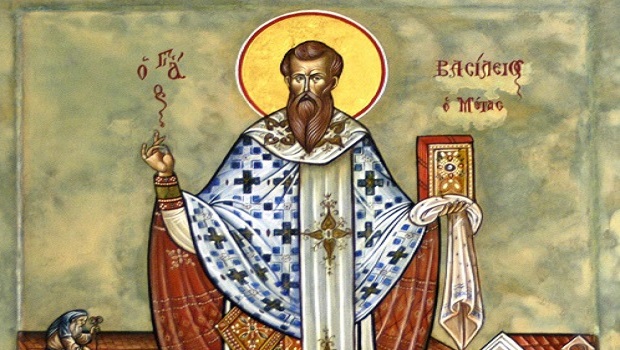May Your mercy, O Lord, be upon us as we have placed our hope in You.
And behold, two blind men sitting by the roadside, when they heard that Jesus was passing by, cried out, “Have mercy on us, Son of David!” The crowd rebuked them, telling them to be silent; but they cried out the more, “Lord, have mercy on us, Son of David!”
Matthew 20:30-31
As we examine the next line of the Doxology, two scenes come to mind. The first is of the two blind men sitting by the roadside. Although they could not see, they perceived the Divinity of Jesus. They identified Him as Lord, and also comprehended His lineage as a descendant of David. How was that possible? Did the Lord stir something in their hearts? The crowds at the side of the road could see very well. Some of those in the crowd were undoubtedly Jewish leaders, people who laid eyes on the sacred Scriptures, who knew all about the promised Messiah, and the Messianic signs that would accompany His arrival, such as the blind being able to see. And instead of encouraging the blind men, i.e. “you’ve got it right, come to Jesus and be healed,” they rebuked them, and tried to silence them. The irony of this scene, the ones who could not see could “see” Jesus as Lord, and those who could see were blinded to this.
As for the blind men, something stirred them. They were not educated, they had obviously never read anything. They were relegated to begging, and the society of the time saw people with blindness (and other severe maladies) as being forsaken by God. In a theocratic society, these were the lowest class of people. Yet, something stirred them. While they may not have had complete understanding of Jesus, they had hope in something greater than them. We don’t know if the men were Jewish or not, we don’t know what exactly they believed. But we know they perceived something extra-ordinary in Jesus. And their hope led them to keep crying out, even when the crowd wished to silence them. Eventually, Jesus came to them, in spite of the crowd, and asked what they wanted, and they indicated a desire to be healed. And Jesus healed them.
The second scene that comes to mind is the Magi following the star. Most Nativity scenes show the Magi at the manger along with the shepherds. This is not how the Biblical account of the Nativity happened. The angels announced the incarnation of Christ to the shepherds who went and found the baby (babe) Jesus lying in a manger. The journey of the Magi, however, took two years. Matthew 2:11 says “going into the house (not the manger, not a cave), they saw the Child (not a baby) with Mary His mother.” One interesting note, for which I do not have an answer, is that both the Incarnation and the visit of the Magi occurred in Bethlehem. The hometown of Mary and Joseph was Nazareth, and we know that they were in Bethlehem for a census when the Incarnation happened. We don’t know if they remained in Bethlehem for two years, or went back to Nazareth and returned to Bethlehem two years later. We know that back in Jesus’ time, people would leave their hometowns and venture to larger cities, like Jerusalem at the Passover, for various things. Just an interesting note.
In any case, the journey of the Magi took two years. These people were not Jewish. Some say they were scholars, others say astrologers, and still others say they were “kings,” like the Christmas carol portrays them. They were not seeking a Messiah, but were following a strange astrological phenomenon. They did have some idea that this particular sign would indicate something significant in the lives of the Jewish people, because when they arrived in Jerusalem, the seat of King Herod, they asked Him “Where is He who has been born king of the Jews? For we have seen His star in the East, and have come to worship Him.” (Matthew 2:2) Like the blind men, they perceived something divine in the person of Jesus, because they came not just to see, but to worship.
Imagine the journey of the Magi, leaving the comfort of their lands, and their presumed positions of authority (and probably luxury) and journeying across hostile and unfamiliar land for two years. Their destination was unknown, and what they would find was also unknown. The only guide was a star, and hope in their hearts that the star might lead to something amazing. If it took two years to get to Christ, it presumably would have taken two years to get back home. Those first two years of the journey must have been filled with hope, and the two-year journey home was undoubtedly filled with joy at what they had seen. We also do not know what happened to the Magi after they returned home—were they in fact, the first “evangelists” or the first ones to share the good news.
Sometimes hope in God is all that keeps us going. Sometimes hope is based on clear understanding—we cling to hope in God because we know God and know that the greater reward of eternal life is worth whatever trials we will endure in this life. And sometimes hope is really based on faith. We have seen “the star” (we have enough evidence or faith to begin the journey) even though we don’t quite know where it is leading, but we continue on, guided by belief that we are following something special. In this journey we ask for God’s mercy to be upon us, because we will have doubts, we will even take missteps and detours, but God’s grace and mercy are what will those gaps and they come into our hearts and souls to keep us moving forward in our journey to Him.
Lord, thank You for the “stars” that guide me towards You, whether that be the Scripture, my personal experience of You, or the experience of others that encourages me to continue in our journey to You. In the times when the journey feels long, or it feels like I am going in the wrong direction, give me grace and mercy to find the way. Make the stars shine more brightly to illumine the path. Help me also to be a “star” for others, being hope for others on the days they can’t find it for themselves. May Your mercy, O Lord, be upon me, as I continue to place my hope in You. Amen.
Never lose hope in the grace and mercy of God. Never lose sight of the “start.” And never stop walking, even when the journey feels long and difficult.


0 Comments